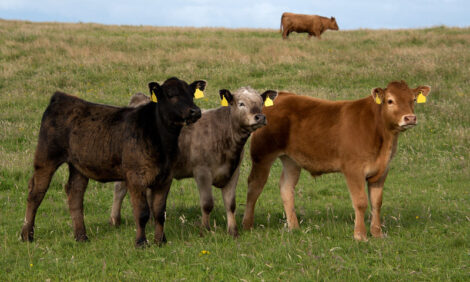



Nourishing and Managing the Dam and Calf for Optimal Lactation, Reproduction and Immunity
Rearing programmes should be designed to take into account long-term consequences on milk yield, according to Dr Alex Bach of IRTA, Spain, at a recent symposium on ruminant nutrition.For several mammalian species, it has been shown that foetal and early post-natal nutrition has a role in long-term lipid and glucose metabolism of the offspring, and it thus also may have consequences on milk yield in the dairy cow, according to Alex Bach of the Institute for Research and Technology in Agrifood (IRTA) in Barcelona, Spain.
In a paper covering the 'Ruminant Nutrition Symposium: Optimising Performance of the Offspring' published recently in Journal of Animal Science, he cited the example that high-energy diets during the last weeks of pregnancy may result in increased glycaemia, which in turn, may alter foetal adipose tissue development. However, most research efforts on management and nutrition of dry cows have focused on minimizing metabolic disorders of the postpartum cow without devoting much attention to potential consequences for the offspring.
Similarly, nutritional needs for proper placental development and early foetal growth have received little attention, according to Dr Bach, despite the fact that alterations in placental and foetal development may alter expression of genes participating in homeorhesis of the offspring.
Therefore, nutrition of the pregnant cow, both while lactating and dry, should also consider aspects of placental and foetal development that may affect health and performance of the progeny. Similarly, newborn calves and young heifers are fed to ensure a particular growth target without compromising mammary development, although data linking postnatal growth targets with future milk yield are scarce.
Milk yield depends not only on mammary development but also on nutrient partitioning, which is regulated by the endocrine milieu.
There are some periods of time during development where nutrition may have long-lasting effects on metabolic function and milk production. For instance, the first months of postnatal life seem to be critical because recent data from both retrospective and controlled studies indicate that increased growth rate or plane of nutrition during this phase is positively associated with future milk production.
Dr Bach added that postnatal growth rate depends on nutrition - a necessary but not sufficient condition - and management (i.e. grouping strategies and housing systems) and thus optimal rearing programmes should be designed considering long-term consequences on milk yield.
Reference
Bach A. 2012. Nourishing and managing the dam and postnatal calf for optimal lactation, reproduction and immunity. J. Anim. Sci., 90(6):1835-1845. doi: 10.2527/jas.2011-4516
August 2012


